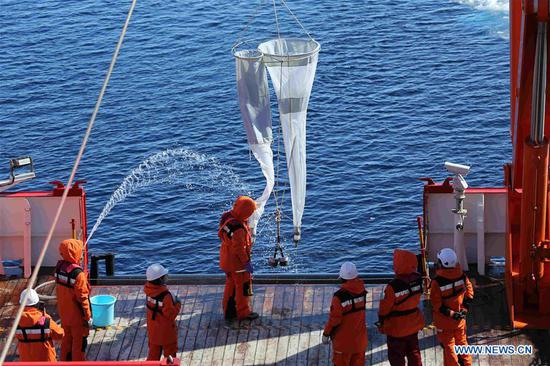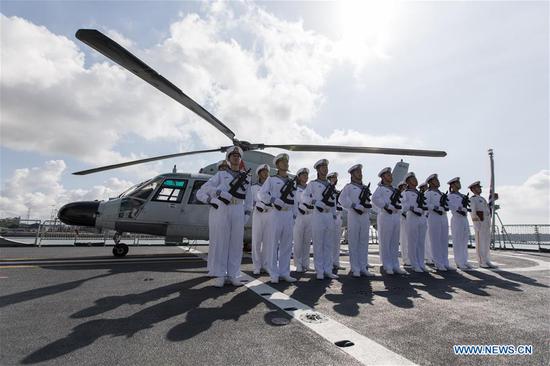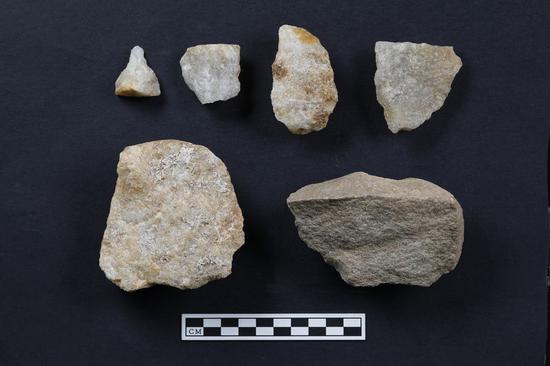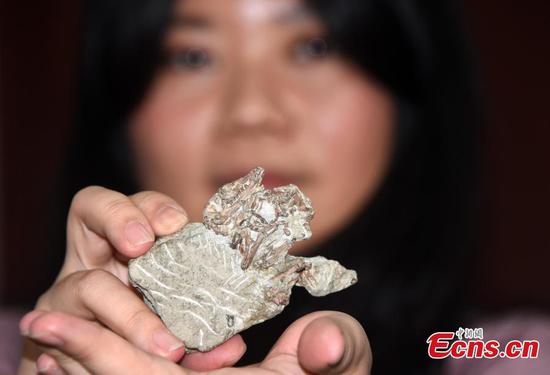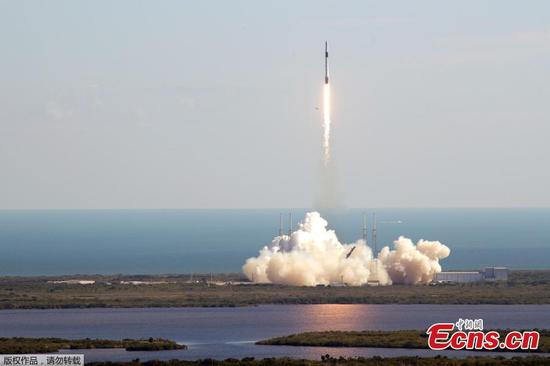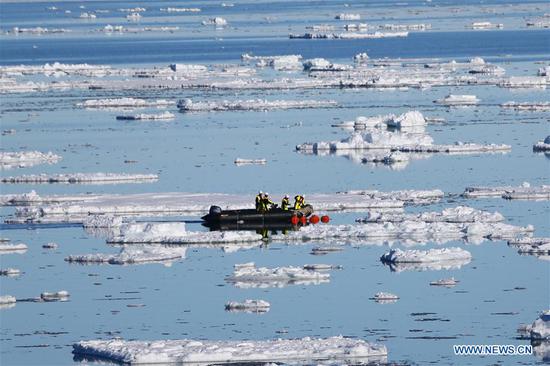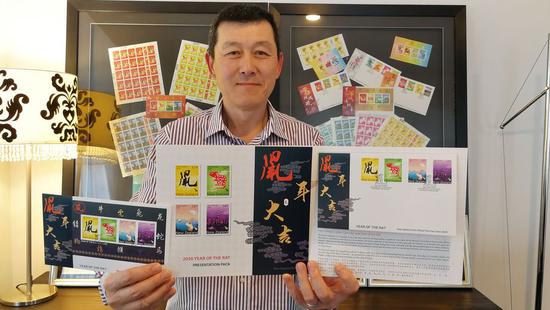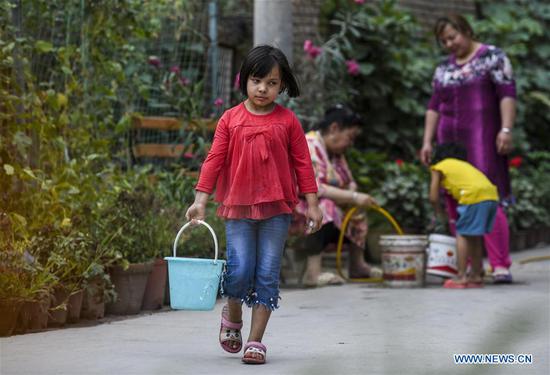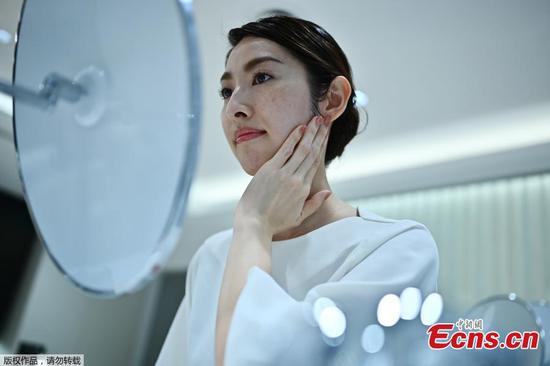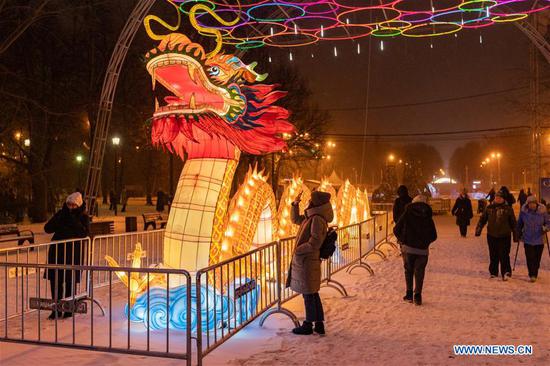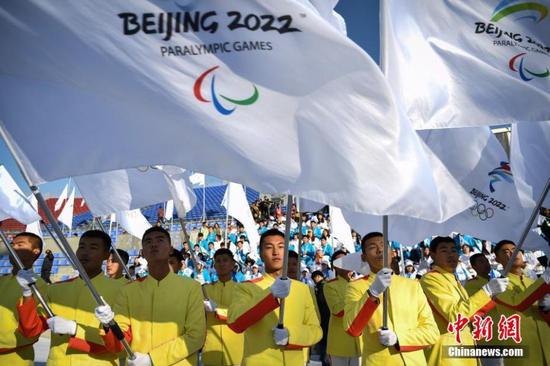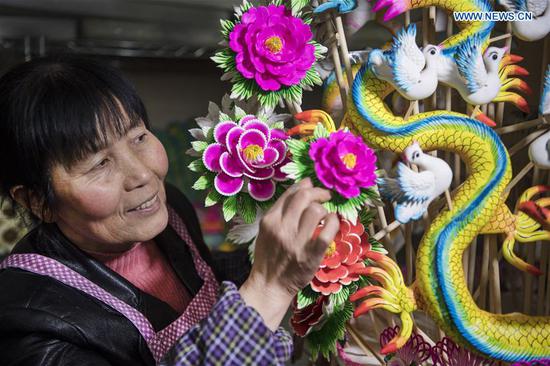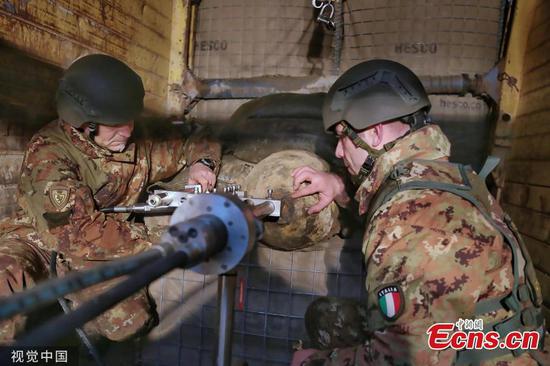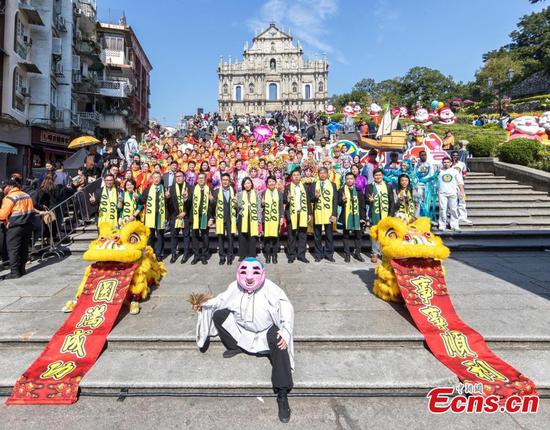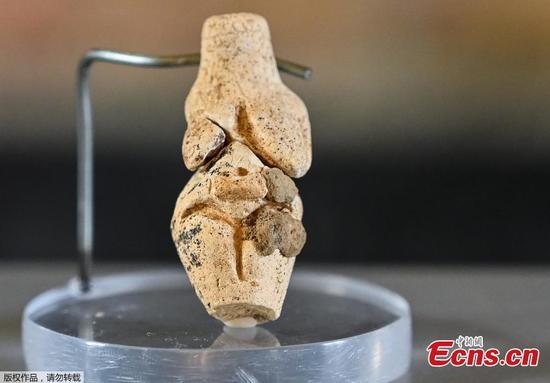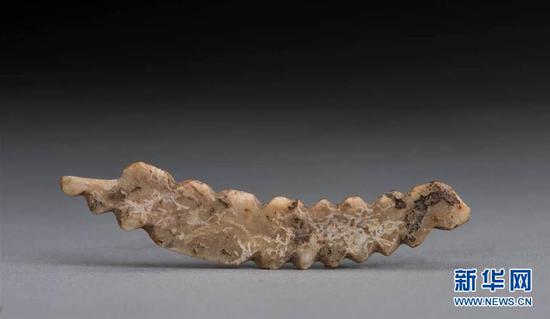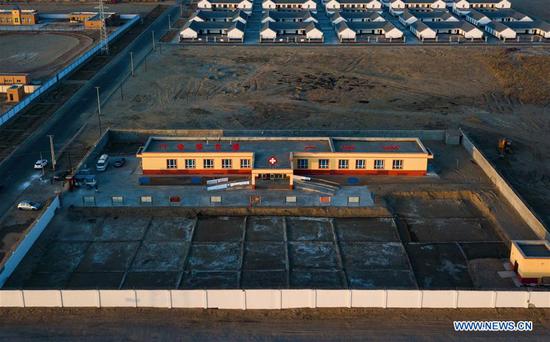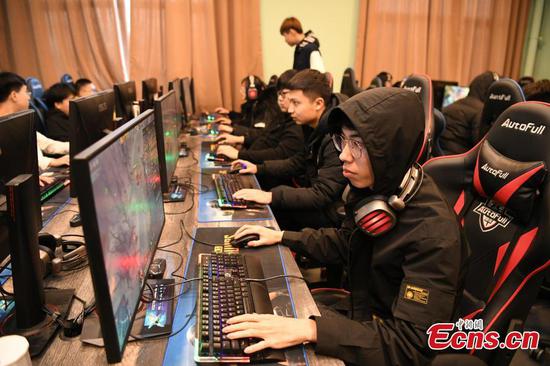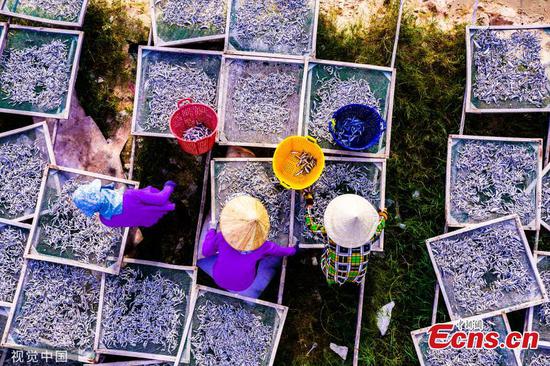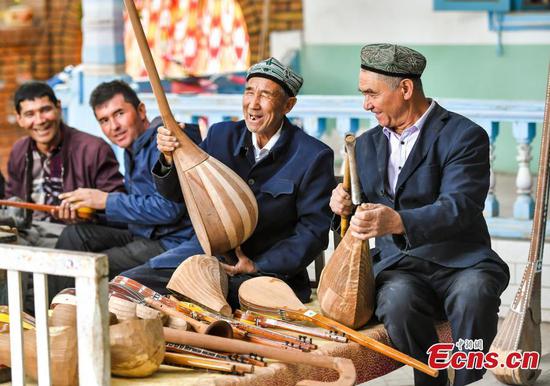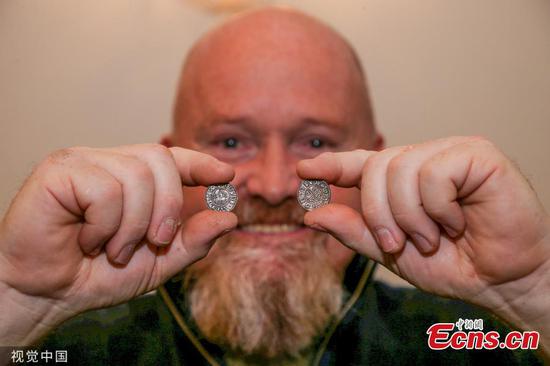The "one country, two systems" principle has proved workable and popular in the Macao, as is shown by Macao's success over the past 20 years, said Fu Ziying, director of the Liaison Office of the Central People's Government in the Macao Special Administrative Region.
Since returning to the motherland in 1999, the SAR has undergone its fastest growth period ever, Fu said in a recent interview.
The key to Macao's success is its comprehensive and accurate understanding and implementation of "one country, two systems" and its strict adherence to the Constitution and the Basic Law, he said.
"The SAR government and all sectors of society have combined upholding the 'one country' with respect for differences of the 'two systems', preserving the power of the central government and ensuring a high degree of autonomy in the region," he said.
On Friday in Beijing, while meeting with Ho Iat-seng, chief executive-elect of the Macao SAR, who will take office on Dec 20, Vice-Premier Han Zheng spoke highly of Macao's practice of "one country, two systems" and expressed hopes that the new administration would fully and accurately implement that principle and act in strict accordance with the Constitution and the Basic Law.
"I hope you will be loyal to the country, brave in responsibility, diligent in governance and honest and upright," Han said.
Fu said that national sovereignty, security and interests have been well protected in Macao. The SAR has passed many laws to safeguard national security.
He said Macao's administrative system has operated smoothly and its level of law-based governance has significantly improved. The executive and legislative branches cooperate and keep each other in balance, and the judicial branch exercises its functions independently.
Macao has well applied the advantages of the "one country, two systems" principle to achieve remarkable economic development. While ma int a ining stable development of its gaming industry, the SAR has accelerated cultivation of new, diversified industries, Fu said, such as exhibitions, traditional Chinese medicine and finance.
Macao's GDP increased from 51.87 billion patacas ($6.43 billion) in 1999 to 444.7 billion patacas in 2018. The fiscal surplus reached 505.6 billion yuan by the end of last year, a 193-fold increase over 1999, greatly enhancing the SAR's ability to protect itself from external risks. The unemployment rate fell from 6.3 percent in 1999 to 1.8 percent in 2018, official data show.
Fu said the SAR has greatly improved residents' welfare, enabling all sectors of society, especially vulnerable groups, to share in the fruits of economic development.
Macao's success could be seen in its social harmony and inclusiveness, with "love for the country and love for the region" becoming the mainstream values, he said.
"One country, two systems", "Macao people governing Macao" and the high degree of autonomy are well-accepted by Macao residents, Fu said.
To expand and improve the quality of development, it is inevitable for Macao to integrate itself into the overall development of the country, he said.
He urged the SAR to further exploit the advantages of the "one country, two systems" principle and participate in the construction of the Belt and Road Initiative and the Guangdong-Hong Kong-Macao Greater Bay Area.










